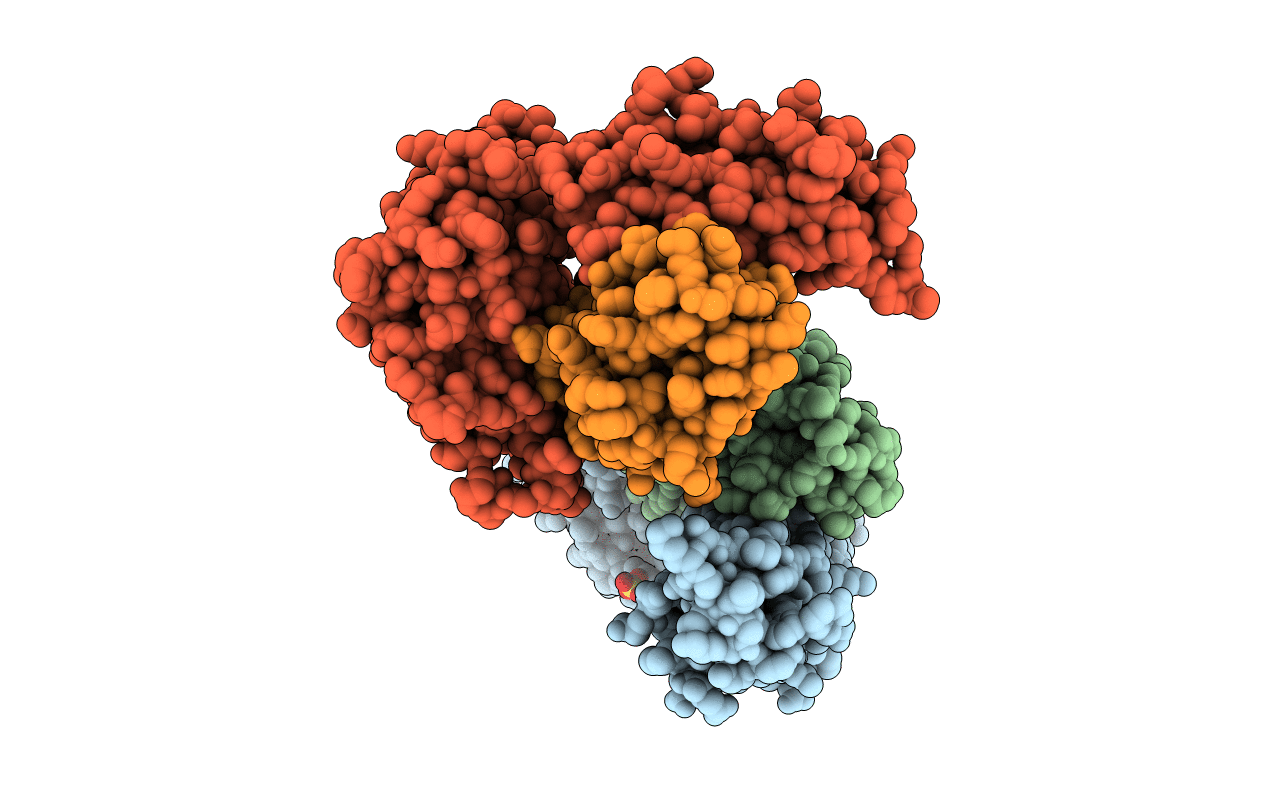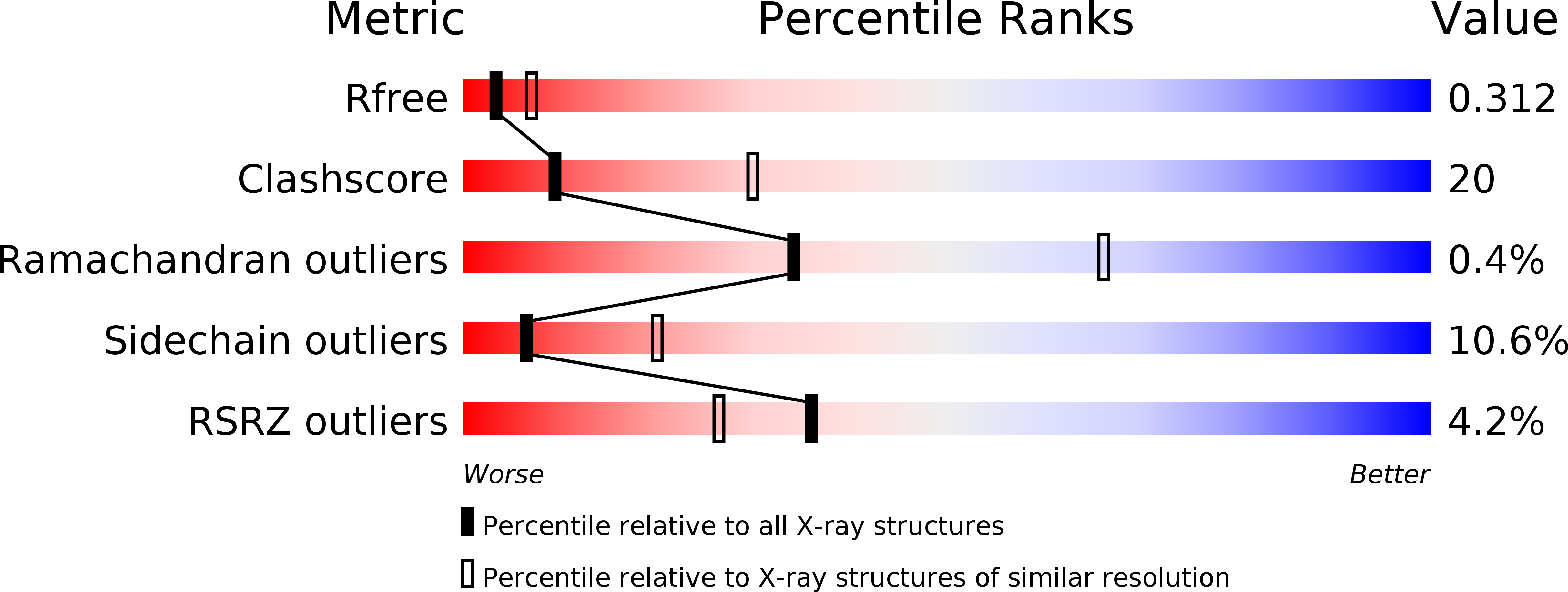
Deposition Date
2012-12-19
Release Date
2013-09-11
Last Version Date
2024-11-13
Entry Detail
PDB ID:
4IHO
Keywords:
Title:
Crystal structure of H-2Db Y159F in complex with chimeric gp100
Biological Source:
Source Organism(s):
Mus musculus (Taxon ID: 10090)
Expression System(s):
Method Details:
Experimental Method:
Resolution:
2.80 Å
R-Value Free:
0.30
R-Value Work:
0.24
R-Value Observed:
0.25
Space Group:
I 2 2 2


